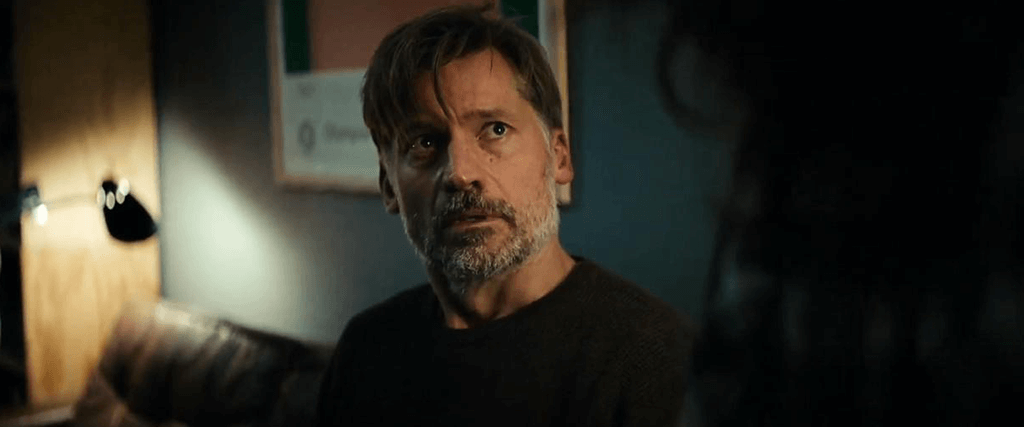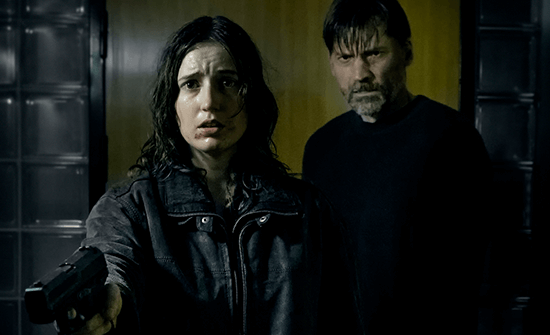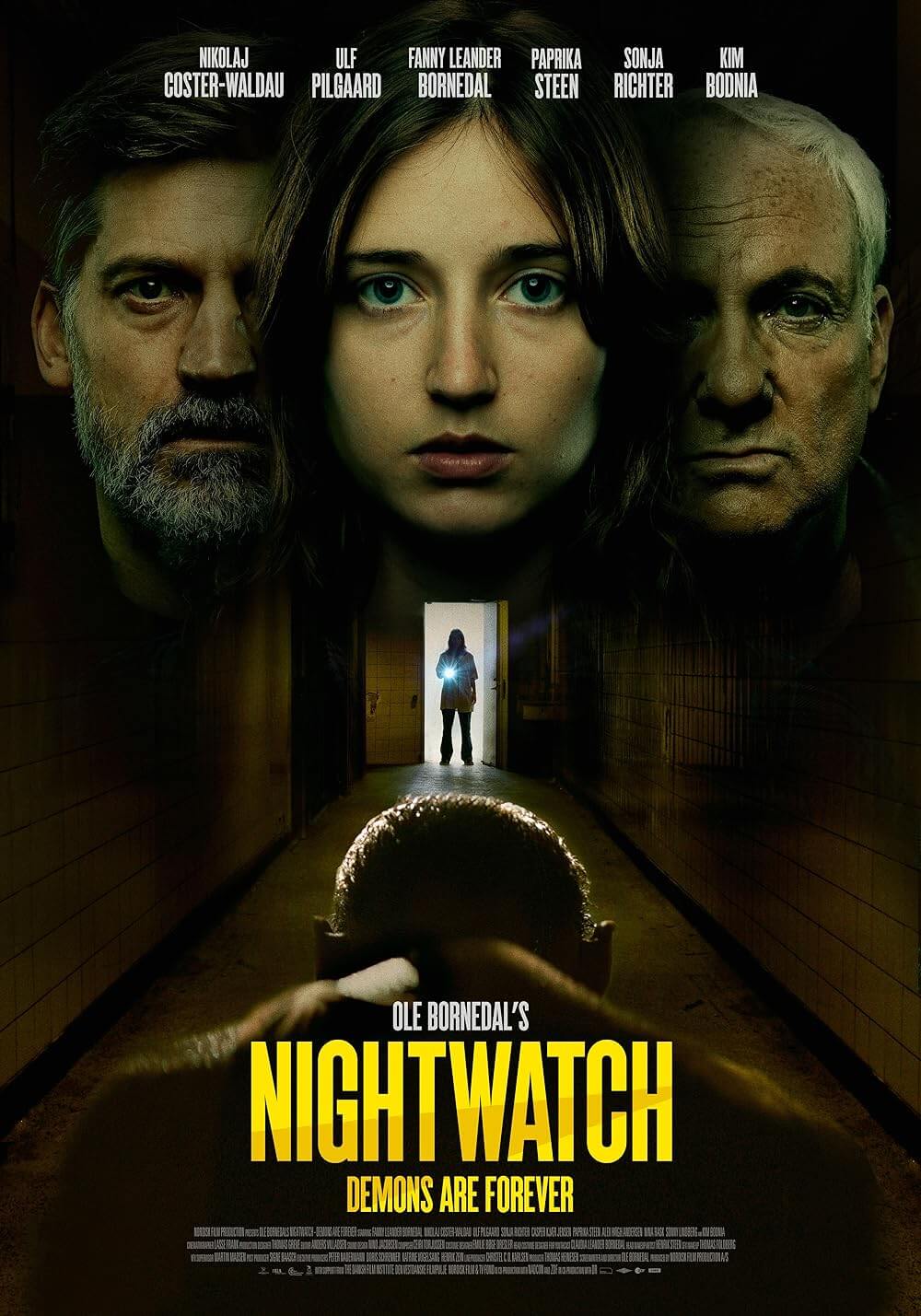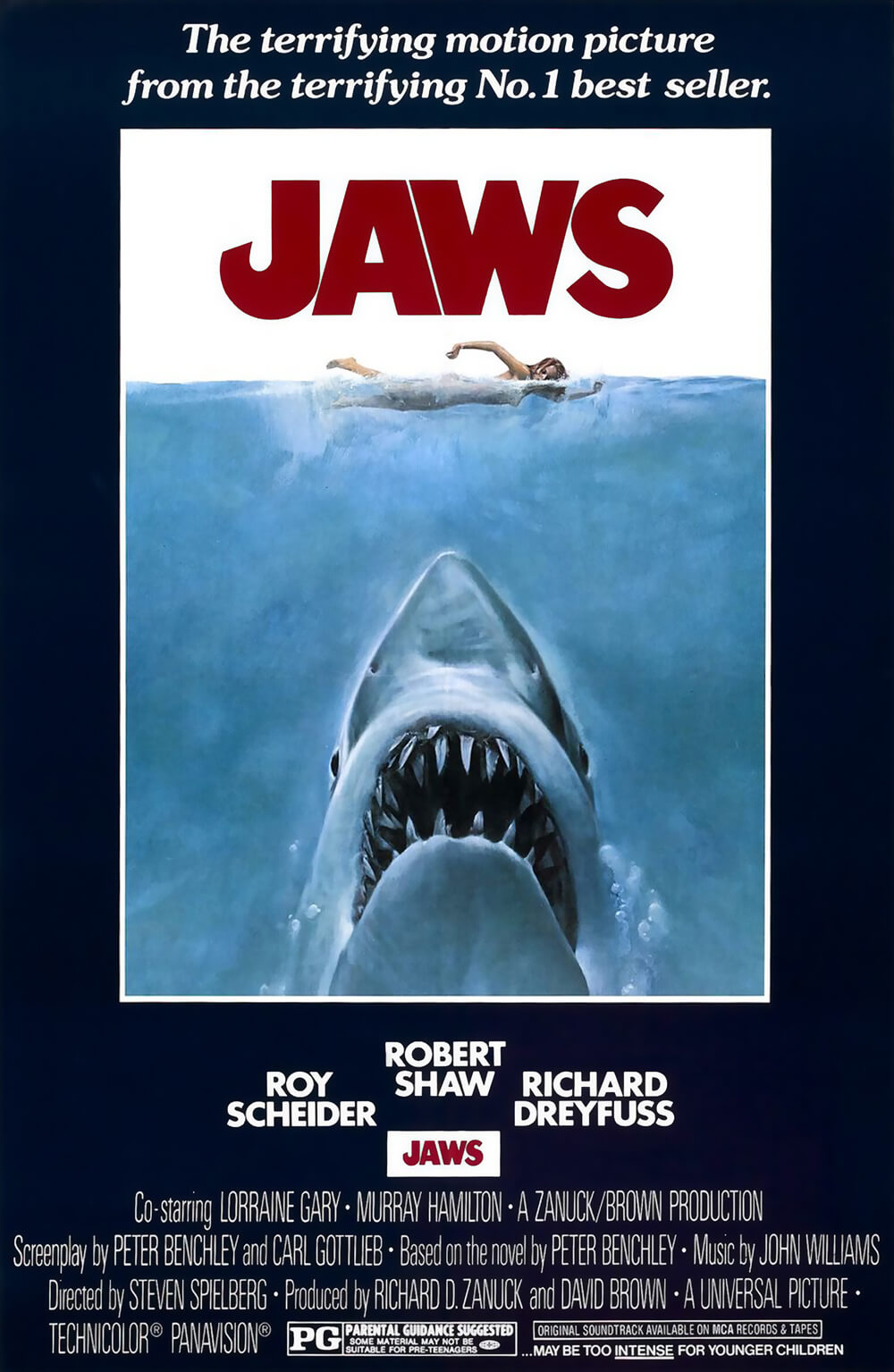
Nightwatch: Demons Are Forever
By Brian Eggert |
Nightwatch: Demons Are Forever posits that the only thing scarier than a serial killer loose in a morgue is one loose in a mental institution. While that’s debatable, the movie certainly makes a convincing argument. Danish filmmaker Ole Bornedal’s follow-up to his 1994 thriller, Nightwatch, operates in legacy sequel mode. The 30-years-later movie, which debuts on Shudder in the United States, recaps the events of the original for those unfamiliar while expanding upon the already disturbing mythology. Although it adopts a somewhat modern approach to its sequel format, the movie feels like a comforting throwback to those 1990s serial killer scenarios that saturated cinemas at the time. What’s so refreshing about Bornedal’s approach is that he doesn’t try to reinvent what works about the first film—which also marked the big-screen acting debut of later Game of Thrones star Nikolaj Coster-Waldau—but he doesn’t just remake it either. Instead, Bornedal goes for a refreshingly familiar brand of shocker that, yes, is a tad predictable. Yet, it remains satisfying for its expert formal execution and delivery of everything one expects from such material.
The original Nightwatch found the first-time director consciously adopting a commercially successful template to break into the American market, eventually joining the long tradition of international filmmakers who remade their original hit in the English language for Hollywood—including George Sluizer (The Vanishing), Dick Maas (The Lift), Hans Petter Moland (In Order of Disappearance), and Takashi Shimizu (The Grudge), among many others. Sure enough, the Weinsteins noticed Bornedal and enlisted him to remake Nightwatch in 1997 for their genre division, Dimension Films. They even contracted Steven Soderbergh to help with the script. While the underrated remake has its moments—enhanced by the stacked cast of Ewan McGregor, Patricia Arquette, Josh Brolin, John C. Reilly, Lauren Graham, and Nick Nolte—it was subject to Harvey Scissorhands’ post-production meddling. Its poor box-office take stalled Bornedal’s Hollywood courtship, sending him back to Denmark to continue making thrillers until he returned for his 2012 hit, The Possession, for Sam Raimi’s Ghost House Pictures.
The original Nightwatch capitalized on the overwhelming popularity of The Silence of the Lambs (1991), aligning with successors such as Copycat (1995), Se7en (1995), Kiss the Girls (1997), and The Bone Collector (1999). For Demons Are Forever, the 1994 version’s director and star return, along with others from the first movie, where Coster-Waldau played a student named Martin Bork who takes an overnight gig at a forensic institute in Copenhagen, hoping it will give him time to study. He becomes wrongly suspected of necrophilia and a series of murders, which, as it turns out, were committed by the investigator, Peter Wörmer (Ulf Pilgaard). In the time since Martin’s narrow escape and Wörmer’s capture, Martin married his then-girlfriend, who was so haunted by their traumatic experience that she committed suicide. Martin, too, remains scarred from the events, which he has kept secret from his med-student daughter, Emma (Fanny Leander Bornedal, the director’s daughter). She takes the same overnight gig her father had three decades ago, and when she learns about her father’s disturbing past experiences, she begins to uncover what happened, hoping answers may give him some peace.
 Bornedal’s script repeats the narrative structure for fans of the original and adds new layers that confront Martin’s psychological wounds. To be sure, Demons Are Forever adheres to today’s horror movie obsession with exorcizing trauma by considering not only how the events in 1994 affected Emma and Martin but also Wörmer’s family. A sympathetic psychiatrist (Sonja Richter) assigned to Wörmer’s case reminds Emma that he, too, had a family—and imagine how they felt in the aftermath of his capture and the media attention around his killings. Emma isn’t interested, having lied her way into the hospital to spit in Wörmer’s face and, what’s more, record it so her father can see what’s happened to his tormentor. But Demons Are Forever never gets bogged down with overly heavy dramatics, allowing the weight of Martin’s lasting trauma to enrich the thriller elements without robbing the experience of its inherent fun. The suspense kicks into gear when a Wörmer copycat (Casper Kjær Jensen) escapes from captivity and targets Martin’s family.
Bornedal’s script repeats the narrative structure for fans of the original and adds new layers that confront Martin’s psychological wounds. To be sure, Demons Are Forever adheres to today’s horror movie obsession with exorcizing trauma by considering not only how the events in 1994 affected Emma and Martin but also Wörmer’s family. A sympathetic psychiatrist (Sonja Richter) assigned to Wörmer’s case reminds Emma that he, too, had a family—and imagine how they felt in the aftermath of his capture and the media attention around his killings. Emma isn’t interested, having lied her way into the hospital to spit in Wörmer’s face and, what’s more, record it so her father can see what’s happened to his tormentor. But Demons Are Forever never gets bogged down with overly heavy dramatics, allowing the weight of Martin’s lasting trauma to enrich the thriller elements without robbing the experience of its inherent fun. The suspense kicks into gear when a Wörmer copycat (Casper Kjær Jensen) escapes from captivity and targets Martin’s family.
Bornedal and cinematographer Lasse Frank Johannessen have evocative spaces to instill dread and an unnerving mood. Early scenes with Emma in the morgue find her warned about spending too much time around cadavers—they’re “like at Chernobyl… If you stay too long, you rot from the inside,” says a guard. But her friend Maria (Nina Terese Rask) is the one who experiences something scary in the morgue, comically set against her blasting Die Antwoord’s “I Fink U Freeky.” But as suggested, the even scarier events occur in the facility housing Wörmer, who’s now blind and practically catatonic yet no less terrifying. It’s the kind of hospital that could only exist in a movie, filled with dimly lit corridors, drab colors, and unreliable employees. Fans of the original will appreciate the callbacks, such as Kim Bodnia returning as Jens, Martin’s former wild-man best friend who disappeared to Thailand after surviving Wörmer. Then again, I suspect Demons Are Forever may be the first exposure many viewers will have to Bornedal’s series. Frankly, seeing the other films isn’t necessary, but it helps. It’s well-crafted, thoroughly entertaining, and features two terrific performances by Coster-Waldau and the younger Bornedal.
Some authors and directors get so hung up on themes or concepts that they remake them again and again, making alterations and refining them as they go. Sometimes, this is to double- or triple-dip into a financially proven idea, exploiting the premise for all its worth. Sometimes, it’s because the idea hasn’t worked its way out of the creator’s head; it’s an authorial obsession, as I imagine is the case with Stephen King, whose books often feel cast in an identical mold. But in most cases, I would guess it’s some combination of commercial imperatives and artistic preoccupation. With Bornedal, who has returned to this idea of serial killers in a spooky setting multiple times under the same title, it’s fascinating to watch the progression from a stylish European potboiler to a modest American remake. Nightwatch: Demons Are Forever could have been an empty cash grab to mine an obscure 1990s property for a quick payday, but it’s actually the best of Bornedal’s three takes on the material and a welcome return to this sort of yarn.

Unlock More from Deep Focus Review
To keep Deep Focus Review independent, I rely on the generous support of readers like you. By joining our Patreon community or making a one-time donation, you’ll help cover site maintenance and research materials so I can focus on creating more movie reviews and critical analysis. Patrons receive early access to reviews and essays, plus a closer connection to a community of fellow film lovers. If you value my work, please consider supporting DFR on Patreon or show your support in other ways.
Thank you for your readership!
Brian Eggert | Critic, Founder
Deep Focus Review







